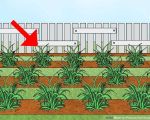Best Fertilizers for Winter Lawn Care: Essential Tips
Apr 17, 2025
Why Winter Lawn Care Needs the Right Fertilizer
As someone who loves spending time in my backyard, I've always taken great pride in maintaining a lush, green lawn. Over the years, I've realized that taking care of your lawn during the winter is just as important as the summer months. Many homeowners tend to neglect their lawns during colder weather, assuming that grass growth slows down and doesn’t require much attention. However, proper winter lawn care is essential for ensuring a healthy, vibrant lawn once spring arrives. And one of the most important aspects of winter lawn care is choosing the right fertilizer.
I remember the first time I applied winter fertilizer to my lawn. It was a mild winter, and I had noticed that the grass in my yard looked a little dull and tired. After a little research, I learned that winter fertilizer could help maintain the grass's strength and vitality through the cold months. Since then, I've made it a routine to give my lawn the nourishment it needs to survive and thrive during the winter.
So, why is winter fertilization so important? Fertilizers provide essential nutrients that your lawn needs to stay strong during periods of dormancy, protecting it from harsh weather and helping it recover faster in spring. In this guide, I’ll walk you through the best types of fertilizers to use for winter lawn care, the key nutrients your grass needs, and when to apply the fertilizer to ensure the best results.
1. Understanding Winter Lawn Fertilization
Winter lawn care isn’t just about keeping your lawn green—it's about giving your grass the nutrients it needs to survive until the warmer months. Grass grows slower in the winter, but it still needs essential nutrients to maintain its roots and strengthen its structure. One of the key reasons to use winter fertilizer is to promote root development and help the grass withstand the cold.
Winter fertilizer is different from the fertilizers you would use in the spring or summer. It’s formulated with nutrients that are geared toward supporting grass during dormancy. Most winter fertilizers contain higher amounts of potassium, which helps with cold tolerance, and a moderate amount of nitrogen and phosphorus to support overall health without stimulating too much top growth.
I've found that choosing the right fertilizer for winter care can be a bit tricky, as you want something that promotes root strength without encouraging rapid growth that could be vulnerable to the cold. This balance of nutrients is crucial for making sure that your lawn is ready to bounce back once spring arrives.
2. Key Nutrients for Winter Lawn Fertilizer
In my experience, not all fertilizers are created equal. Understanding what each nutrient does can help you select the right one for your lawn's winter needs. There are three key nutrients to look for when choosing a winter fertilizer: nitrogen (N), phosphorus (P), and potassium (K).
- Nitrogen (N): Nitrogen is responsible for promoting overall growth and greening. In the winter months, however, you don't want to overdo it with nitrogen, as it can encourage too much top growth, making the grass susceptible to frost damage. Instead, a balanced nitrogen content will help maintain the grass without encouraging excessive growth.
- Phosphorus (P): Phosphorus is essential for root development. During winter, the roots are still growing, albeit slowly, so it's crucial to have enough phosphorus to ensure that the roots stay strong and healthy. Phosphorus also aids in drought resistance, which can be particularly helpful during dry winter spells.
- Potassium (K): Potassium is one of the most important nutrients for winter lawn care. It helps the grass build resistance to cold temperatures, disease, and drought. Potassium also helps the plant use water more efficiently and improves overall strength, making it one of the key ingredients in any winter fertilizer.
When I first started winterizing my lawn, I noticed that fertilizers with a higher potassium content helped keep the grass resilient against frost and dry conditions. This made a huge difference in how well my lawn survived the winter and bounced back in the spring.
3. Best Types of Fertilizers for Winter Lawn Care
Now that we know the nutrients to look for, let's dive into some of the best types of fertilizers that I've personally found to be most effective during the winter months. There are a few different options depending on your lawn's needs and local climate.
- Slow-Release Fertilizers: Slow-release fertilizers are perfect for winter care because they provide a steady, gradual release of nutrients over time. This is ideal for the winter months, when the grass's growth is slower, and it helps avoid overfeeding the lawn. These fertilizers typically have a mix of nitrogen, potassium, and phosphorus in a controlled-release form, ensuring that your lawn gets the nutrients it needs without promoting too much top growth.
- Organic Fertilizers: Organic fertilizers, such as those made from compost or plant-based materials, are a natural option for winter lawn care. They release nutrients more slowly and improve the soil structure, which is beneficial for your lawn’s long-term health. I've used organic fertilizers in the past and found that they not only helped maintain my lawn's health through winter but also improved the overall soil quality, making it easier for my grass to thrive in the future.
- Winter-Specific Fertilizers: Some fertilizers are specially formulated for winter care, with a higher concentration of potassium and minimal nitrogen. These fertilizers are designed to support your grass during the cold months, helping to maintain root health and improve cold tolerance. One product that I’ve used with great success is the "Scotts Turf Builder WinterGuard" fertilizer. It's designed specifically for winter and provides the perfect balance of nutrients to keep my lawn strong.
4. When to Apply Winter Fertilizer
The timing of fertilizer application is just as important as the type of fertilizer you choose. In my experience, the best time to apply winter fertilizer is in late fall or early winter before the first hard frost. This ensures that the grass gets the nutrients it needs while it's still actively growing, even though growth slows down during the colder months.
Most experts recommend applying fertilizer about 4-6 weeks before the first expected frost. This gives the lawn enough time to absorb the nutrients and prepare for the winter. I typically apply my winter fertilizer in late November or early December, depending on the weather forecast for the area.
One thing to keep in mind is that fertilizing too late in the season can encourage unnecessary growth that is vulnerable to frost damage. If the temperature is consistently below 40°F (4°C), it’s too late to fertilize, as the grass will no longer be able to absorb the nutrients.
5. Tips for Winter Lawn Care Beyond Fertilizing
While fertilizing is an essential part of winter lawn care, there are a few additional tips that I’ve found helpful in maintaining a healthy lawn during the colder months.
- Mow Before the First Frost: Before you apply winter fertilizer, it’s important to mow your lawn one last time. Mowing the grass to an appropriate height helps it prepare for winter and allows the fertilizer to reach the soil more effectively. Just make sure you don’t cut the grass too short, as this can leave it vulnerable to cold damage.
- Water Wisely: While your lawn requires less water in the winter, it's still important to provide some moisture, especially during dry spells. I typically water my lawn once every couple of weeks during the winter, ensuring the soil stays moist but not overly saturated.
- Aerate the Soil: Aerating the soil can help improve nutrient absorption, especially if your lawn has heavy clay or compacted soil. Aerating in the fall or early winter can help the fertilizer penetrate deeper into the soil, giving your grass a better chance of thriving in the spring.
6. Common Mistakes to Avoid in Winter Lawn Care
Over the years, I’ve learned a few common mistakes that people make when it comes to winter lawn care. Here are a few things to avoid:
- Over-fertilizing: Applying too much fertilizer can encourage excessive growth, which makes the grass more susceptible to winter damage. Stick to the recommended application rate on your fertilizer bag to avoid overfeeding your lawn.
- Fertilizing When It’s Too Cold: As mentioned earlier, applying fertilizer when temperatures are too low can prevent the grass from absorbing the nutrients properly. Always check the forecast and wait for milder weather before fertilizing.
- Neglecting Lawn Maintenance: Fertilizing is only one part of the equation. Be sure to keep up with regular lawn maintenance, such as mowing, watering, and aerating, to ensure your lawn remains in optimal condition.







